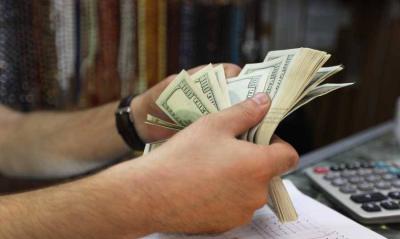Lebanon is experiencing one of the worst examples of economic collapse in the world, entering the fourth year of its financial crisis. A researcher from "International Information," an independent research and statistical studies company established in Beirut in 1995, revealed that a segment of Lebanese citizens has transitioned from middle class to poverty over the past few years. Researcher Mohamed Shamseddine stated to Sky News Arabia that "the economic financial crisis that Lebanon has been facing since late 2019 has changed the demographic structure of the population, with the middle class decreasing from about 70% to around 30 or 40%." He added, "In contrast, the poor now make up 55% of the Lebanese population, which is a very concerning figure."
Shamseddine pointed out that "this percentage would have been higher if it weren't for the assistance provided by charities and the financial support from the Lebanese diaspora abroad," emphasizing that "these individuals are the direct reason for the country's survival, as around 250,000 families in Lebanon receive remittances in foreign currencies from their children and relatives abroad." According to the researcher, the crisis in Lebanon has devastated public services, including electricity, education, and healthcare, which have become prohibitively expensive. He noted that "the state suffers from hesitation and delays in implementing decisions, continually facing economic collapse characterized by the devaluation of the Lebanese currency and surging prices of goods, which precedes its ability to manage the situation, resulting in increased poverty and unemployment."
As the poverty belt expands within the country, the gap between the rich and the poor has widened significantly, amid a complete lack of state support and institutional care, prompting international organizations to intervene and provide direct assistance to the people. Most recently, the U.S. Agency for International Development announced it would provide $72 million to help feed hundreds of thousands of Lebanese citizens struggling amidst the crisis.
Adnan Ramal, a member of Lebanon's Economic and Social Council, told Sky News Arabia that "the focus of poverty in Lebanon today is the inability of citizens to secure their daily needs to live with dignity, such as healthcare and education, while a major risk lies in the existence of a class unable to secure its food." Ramal added that Lebanon is experiencing "the worst stages of poverty over the past three years, amid a complete absence of any governmental measures to curb the economic deterioration and support the poor, which has prompted international organizations, which described the situation as alarming, to intervene and cover the roles that the state should perform." He regarded Lebanon's economy as a model where the poor rely on assistance from charities and remittances from expatriates. According to Ramal, most charities and international organizations operating in Lebanon provide assistance directly to the people without any role from the state, "due to these organizations' lack of trust in state institutions that suffer from corruption."




